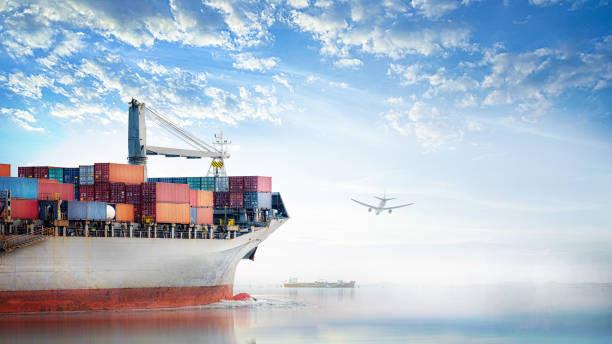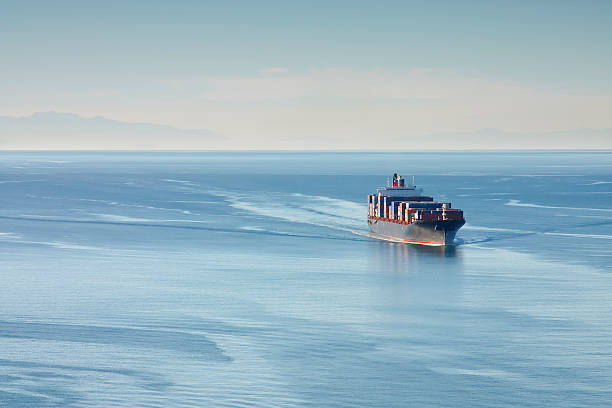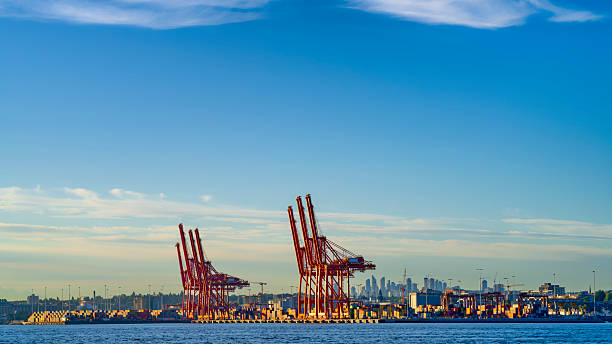The smooth flow of goods across continents is vital for global commerce. Among the various modes of transportation, international sea freight shipping continues to be the backbone of logistics, enabling businesses to move vast volumes of cargo safely, cost-effectively, and reliably. Despite the growth of air transport and digital supply chain solutions, ocean freight still carries over 80% of global trade by volume, proving its unmatched importance.

The Core Role of International Sea Freight Shipping
The resilience of sea freight lies in its unique ability to handle massive cargo loads that no other transportation method can match. From raw materials and manufactured goods to oversized machinery and sensitive items, ocean shipping connects global supply chains at a scale and cost that alternatives cannot achieve. With global ocean freight services, businesses are not only moving goods but also securing reliable trade channels that link production hubs with consumer markets worldwide. Whether shipping between Asia, Europe, or North America, sea freight remains a trusted solution for maintaining the rhythm of international trade.
Container Shipping Benefits: Efficiency and Versatility
One of the greatest innovations in logistics has been the standardized shipping container. The advantages of container shipping benefits are clear:
Efficiency: Containers can be easily transferred between ships, trucks, and trains, minimizing handling costs and reducing risks of damage.
Security: Goods are enclosed in sealed units, offering protection during transit.
Versatility: Both dry cargo and temperature-controlled goods can be shipped safely in containers.
For businesses, containerization ensures predictable timelines, reduced losses, and better inventory management.

FCL and LCL Sea Freight: Flexible Solutions
Different businesses have different needs, and sea freight offers flexibility through FCL and LCL sea freight options:
Full Container Load (FCL): Ideal for large shipments, offering dedicated container space, higher security, and better cost per unit.
Less than Container Load (LCL): Designed for smaller shipments, consolidating cargo from multiple shippers to share container space and reduce costs.
This flexibility allows companies of all sizes—from large-scale manufacturers to growing e-commerce exporters—to benefit from sea freight solutions that match their cargo volume and budget.
Ocean Freight Forwarding Services: Streamlining Complexity
Navigating international logistics can be complex, with customs clearance, route planning, and port coordination playing crucial roles. This is where ocean freight forwarding services add significant value. Freight forwarders help businesses manage the intricate details of global shipping, ensuring compliance, optimizing transit routes, and reducing risks of delays. A trusted freight forwarding partner provides peace of mind by turning complex global shipping processes into smooth, coordinated operations.
Why EVERGRAND Stands Out in International Sea Freight
As a brand committed to reliability and cost-effectiveness, EVERGRAND provides comprehensive ocean freight solutions that meet diverse shipping demands. The company’s core strengths include:
Cost-effective for moving large quantities of cargo: Ensuring businesses save on logistics expenses without compromising reliability.
Bigger payload capacity: Efficiently handling heavy machinery, oversized goods, and industrial shipments that other methods cannot manage.
Convenient for sensitive cargo: Offering specialized handling for goods that are unsuitable for air freight, such as hazardous materials or delicate items.
By combining expertise with global logistics networks, EVERGRAND empowers businesses to streamline their supply chains and maintain competitive advantages in international markets.

The Future of International Sea Freight Shipping
While technology and market conditions continue to evolve, the strategic value of ocean freight is unlikely to diminish. With growing focus on sustainability, digital tracking, and smart ports, the sector is becoming even more efficient and transparent. For businesses that require scalability and cost control, international sea freight shipping will continue to play a central role in connecting economies and powering global logistics.




















